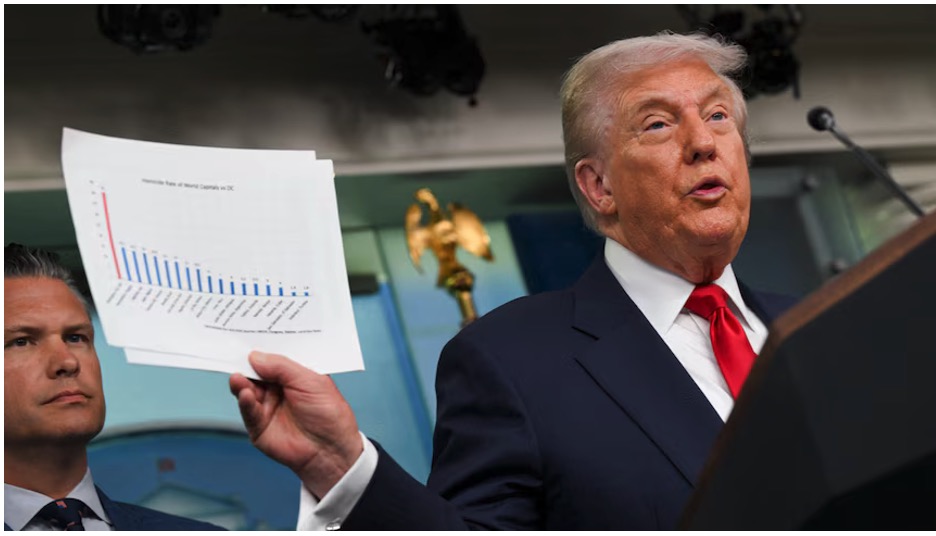Comments
AUTOCRATS - Archbishop Desmond Tutu once observed, “If you are neutral in situations of injustice, you have chosen the side of the oppressor.” Neutrality, that cultivated quiet born of fear, habit, or resignation, is not a passive state; it is the circulatory system of every autocracy. Tyrants survive by persuading us that resistance is impractical and isolation inevitable.
But history is an unforgiving archivist. And it shows, again and again, a peculiar symmetry: the very tools used to fortify power eventually dismantle it. Autocrats, in their pursuit of control, corrode the trust they require to govern. The rot begins at the edges and works inward, until loyalty is reduced to performance, and performance to betrayal.
We can see this pattern at work in places with little else in common. In Moscow, to call the war in Ukraine by its name is a prosecutable act; in Beijing, Xi Jinping presides over a vast lattice of surveillance capable of suppressing dissent before it surfaces. In Gaza, Benjamin Netanyahu’s siege fractures the routines that bind a community together. In Budapest, Viktor Orbán recasts the nation’s identity as a battleground for culture wars. And in Washington, D.C., the familiar architecture of American federalism has begun to bend.
This week, President Trump announced that the federal government would assume direct control of the city’s Metropolitan Police Department, invoking the Home Rule Act to override local authority. His reasoning — that the capital had been overtaken by “violent gangs” and “drugged-out maniacs” — was less a policy prescription than a rhetorical gambit: create a crisis, centralize power, and amplify fear.

In the Bright Line Watch survey, which gauges the health of American democracy by asking political scientists to assign a score between zero and one hundred, the United States has been sliding steadily downward. At the start of Trump’s first term, the figure stood at sixty-seven. Now, in the early days of his second, it has fallen to fifty-five. John Carey, a government professor at Dartmouth and co-director of the survey, called the decline “precipitous.”
The erosion is not merely institutional; it is social. Autocrats work to dissolve the connective tissue of civic life, to make trust a liability, loyalty suspect, and friendship a potential threat.
They:
· Fracture communities.
· Demand betrayals of conscience.
· Seed mistrust within families.
And yet human dignity endures in stubborn, subterranean forms. In a backroom café in Budapest, someone whispers a forbidden name. In Xinjiang, a photograph passes discreetly from one phone to another. In Gaza, children play soccer in the street, under the shadow of watchtowers. In Washington, neighbors organize legal-aid clinics for the newly arrested.
History’s ledger is crowded with the names of regimes that presumed permanence, and discovered otherwise. The Berlin Wall came down. Pinochet’s junta dissolved. Apartheid South Africa gave way to a multiracial democracy.
Václav Havel once wrote, “The power of the powerless is that they think for themselves and refuse to live within the lie.” This refusal, multiplied across millions of private acts, is the untraceable current that undermines the foundations of tyranny.
In the end, the paradox is unavoidable:
Freedom outlasts control. Dignity outlasts humiliation. Connection outlasts isolation.
Tyranny, for all its posturing, cannot endure indefinitely, because human beings are forever slipping the knot, finding one another in kitchens, classrooms, alleyways, and parks, rebuilding the invisible scaffolding of trust. When that scaffolding is strong enough, the palace walls fall inward, revealing that the whole edifice was held together by fear alone.
(George Cassidy Payne is a freelance journalist, poet, and crisis counselor based in Rochester, New York. He writes extensively on faith, culture, and social justice, weaving together perspectives from philosophy, theology, and lived experience. George’s work has appeared in local and national outlets, and he is passionate about exploring the intersections of religion and community in a rapidly changing world.)





